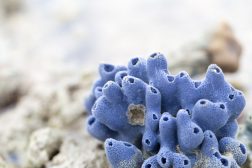Definition
noun
(taxonomy) A phylum comprised of roundworms characterized mainly by their smooth, cylindrical, thread-like unsegmented body
Supplement
Phylum Nematoda is a phylum of invertebrate animals. They are comprised of roundworms (or nematodes). They are identifiable by their smooth and tough outer covering and narrow cylindrical unsegmented body. Their name is etymologically derived from the Greek word nema, nematos, meaning “thread”. Another distinctive feature is their digestive system. They have a tubular digestive system with openings at both ends.
Many of them are parasitic. Thus, together with flatworms, cestodes, and trematodes, the nematode species that are parasitic are referred to as helminths. An example of a parasitic species is Ascaris lumbricoides. The adult A. lumbricoides is macroscopic as it can grow to a length of up to 35 cm. It is the largest and the most common parasitic roundworm in human intestine. Infection occurs after ingesting eggs contained in contaminated food or more commonly, by transmission to the mouth by the hands after contact with contaminated soil. Treatment is with mebendazole or pyrantel pamoate. Other parasitic nematodes include filarias, hookworms, pinworms, and whipworms.
Free-living species feed on algae, fungi, fecal matter, dead organisms, etc. An example of a free-living nematode is Caenorhabditis elegans that lives in the soil.
Word origin: Greek nema, nematos (“thread”)
Scientific classification:
- Kingdom: Animalia
- Clade: Nematoida
- Phylum: Nematoda Diesing, 1861
Common name:
See also:

